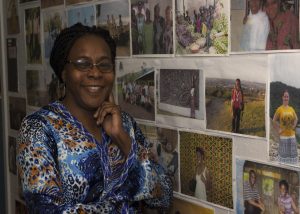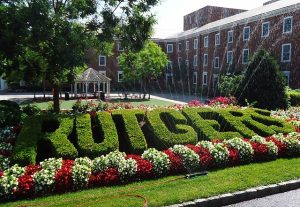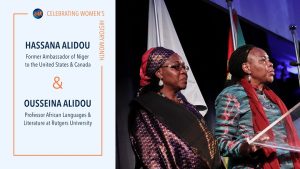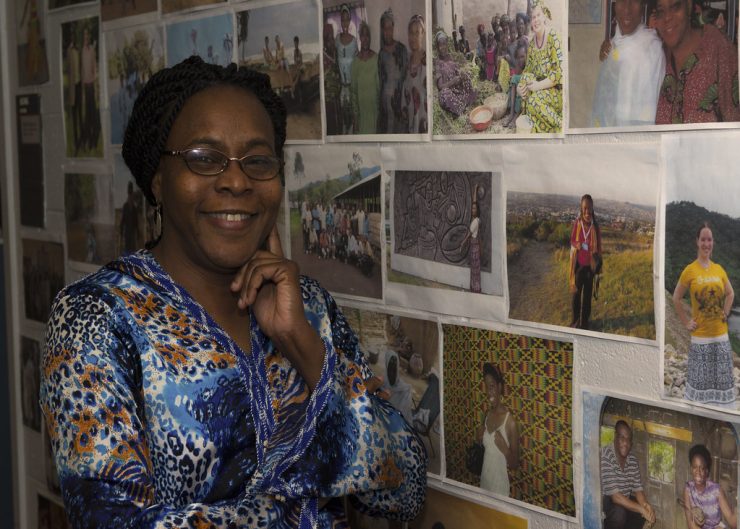A PANEL DISCUSSION ON AFRICAN STUDIES, PART 2

This is the interview report with a panel comprising Professors Richard Joseph, Ousseina Alidou, and Ken Harrow on November 19, 2023. For the transcripts:
YouTube: https://youtube.com/watch?v=GN6IcDGTAzE
Facebook: https://fb.watch/eLOPycx-MF/)
PROFESSOR OUSSEINA ALIDOU ON AFRICAN STUDIES AND GLOBAL HEGEMONY
Toyin Falola
Discussions around African Studies, its progress, and the projection of its future have increased relatively in recent times, led by scholars of decoloniality and African Indigenous Knowledge System. There are also debates in multiple centers in Africa about the value of academic work to development and policies. Complaints are loud that the PhD topics and many new books are disconnected from African concerns and future.
The conversations have been evident in different ideological spaces and blocs around the continent. Social media has escalated both the intensity and scope of the debates and platforms. However, what has been making the dialogue possible are the individuals who have taken strong grounds and hold of the importance of decolonization of African studies. They have kept the rhythm of the voices and inducted new minds and perspectives into subscribing to the endeavors.
One thing is to have several individuals who will not let go of the discourse; another is the increase in the number of platforms and means by which those convictions are both solidly held and propagated. The Toyin Falola Interviews, with other platforms that give direct access to African Studies, have given considerable relevance to some of the prominent issues. There are various ecosystems—the opinion you hold in one may not be accepted in another. The ecosystems primarily devoted to the African perspectives have provided a ground for public history and materials rich enough to extend the scope of African Studies. In this sense, several African scholars, decision-makers, opinion leaders, organic intellectuals, and those with direct or indirect access to how African histories and studies are perceived are often engaged.
Professor Ousseina Alidou, who has often taken discussions around the uniqueness of African Studies and African perspectives, has invested many years of scholarship in expanding the frontiers of knowledge around Muslim women and women generally in African Studies. Through the Toyin Falola Interviews, she recently gave clearer perspectives on the state of African Studies in the face of global hegemony. The Panel Discussion on African Studies, held on November 19, 2023, having Ousseina D. Alidou, Professor Kenneth Harrow and Professor Richard Joseph, brought about new ideas on the subject of African studies.

Photo: Rutgers University
The subject of global hegemony over African Studies started before I was born. The creation of several schools of thought has also propagated various ideas and ideologies. However, after many years of attempts at decolonizing African Studies and revolutionizing the academic institutions, the ghost of the past still haunts the African knowledge system. Like Professor Alidou agreed, the mirror of Africa and its studies are often from the reflections and projections of the European perspectives, so strong, that it has created a cultural and perspective domination in the knowledge production system. She posited that the colonialists and the global hegemonies have created some sort of hypnosis (to use my own word!) or understanding that has affected even the ways Africans see themselves, the continent, and its studies. Drawing from this, the problem is not only about the domination of foreign methods of science and studies in Africa but also the root of the understanding of African studies that form the basis of the conceptualization of the studies themselves. Africans now see Africa in ways far from African binoculars.
Reflecting on the above subject, Professor Alidou stated her continuous provocation from the fact that it is easier to remember any European, Latino, Asian, or foreign scholar who has written about Africa and African Studies than people would remember African or local scholars themselves. It then begs the question of whether the agitation for the projection of African Studies is to tell the world to change our tune and talk about Africa while Africans fold their hands or barely engage the subjects of Africa. From her position, it seems that there is just a subject matter switch from the former predominant foreign literature to foreign studies of Africa.
The implication of this is that African ideologies would have to be beaten into foreign methodologies, thereby killing the uniqueness of African Studies, which should have been the paramount effort. She retorted that this is why methodologies like STEM would not inculcate African art, cosmology, philosophies, and perspectives in their originalities. This is because those ideologies must be made to conform to these methodologies. This is simple: foreign perspectives or sentiments in foreign studies of Africa will always remain constant, and the African materials and essentials must conform to their parameters. As Professor Alidou has rightly stated, there is a need to build scientific, methodological, and analytical parameters around African elements and not just conform African elements to them. This is why, as she further stated, it is difficult to interpret and represent African perspectives of science.
There really cannot be a satisfactory positioning of African Studies in cogent knowledge parameters that cannot be interpreted or projected from the lights of African elements. As she said, if science cannot be embedded into spirituality, culture, and art, then there are still more stairs and steps away from the actualization of the dream.
This then makes me ponder: In light of all of these, what is science? This is not to go into the etymological definitions but structural conception in this context. Science should not be seen from the angle of a conception of foreign endeavors. Dissenting ideologically from Professor Alidou, science should not be seen as so distant from Africa. It is not science because of the scientific theories and discoveries propounded by foreigners; it is science because it raises questions of inquiries, methodologies, and certainty, especially through objectivities. I will then further ask if there can be African science or European science in the angle of having a cultural distinction of science. Everyone can agree that the primary backbone of science itself is the objective attributes and its subscription to certainty through inquisitive processes. This dissent then explains the depth of Professor Alidou’s observations: it is that science and scientific inquiries should not quarantine away from what could be wrongly seen as African frivolities. It is that the important subject of spiritualties, witchcraft, and rituals could inhale the breath of science in its entirety and independent of already concluded global biases. It is that Africans should build science out of African elements.
To put these positions in line, Professor Alidou stated that Africans and African scholars should remember that the studies should not be rested on essentialist narrow perspectives. African studies should not be seen as a stand-alone discipline because of the attempt to protect it from excessive diffusions; it should be able to tap into global knowledge but from a strong ground. So, the effort is not to isolate African Studies, it is to rightly develop African Studies, use them to understand and interpret foreign ones, and develop them from the distilled global materials. This would be the difference between global hegemony and global instrumentalism.
These efforts need repositioning African mentalities towards African Studies. However, it is a devastating reality that the drive to continue these sanitations has been low among young folks in Africa. The persuasion towards scholarship has been low. This could partly be because scholarship in Africa is growing to be less attractive, especially from the angle of incentives. Other factors have also taken the attention of those that would guarantee to onward efforts of the movements. In this light, Professor Alidou pointed to the need for reinvestment into Afrocentric studies and African scholarship. But to meet these investments, social efforts must be made to raise national identity. This was the muse decades ago in Africa, when writers like Chinua Achebe, as she referenced, and scholars spearheaded African discussions. But a fundamental challenge is that the drives have been lower these days, and Professor Alidou suggested two ways to rekindle it: the reinvestment in African Studies and the promotion of national identity.

Where education and studies are viewed and interpreted from Afrocentric and national vantage points, they would provide more solutions to local problems, challenges, and conceptualizations. For instance, Professor Alidou alluded to the fact that if education were to have been presented and projected from a cultural perspective and the enlightenment would be seen as a property of culture, acceptance would increase against other reservations. This could solve problems like terrorism in West and East Africa. Alas! the terrorists are Africans, and they subscribed to their cultural materials, no matter how remote. Where education is not very distinguishable or differs radically from culture and the concepts sought to be taught are reflected from the beams of culture, maybe education would not have been seen as “haram.”
In essence, Professor Alidou’s position is that African Studies must be such that they adopt the elements and complexities of Africa and this must be seen from every bit of ideologies, methodologies, and concepts. It should not be a mere redirection of foreign discourses towards African Studies but Africans, developing African Studies to have a stronghold of global politics of knowledge. As of today, no platform has been successful in doing what the distinguished Professor Alidou is talking about. Rather, what they are doing is fund solicitation to reinforce the hegemonies. Alas! they even boast about it, using the left finger to point to one father’s house.














You must be logged in to post a comment.